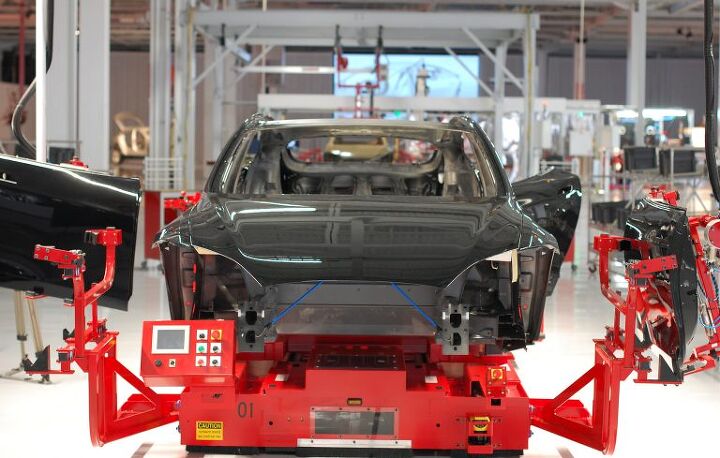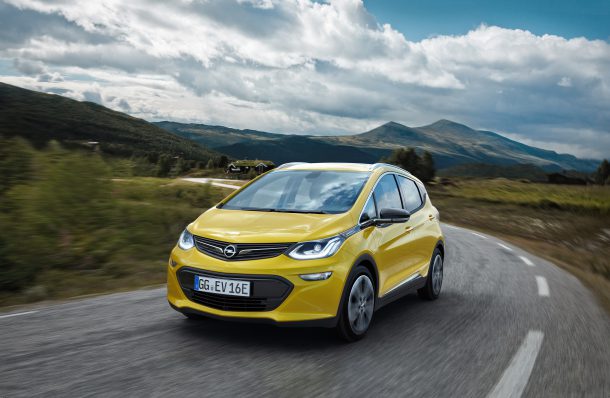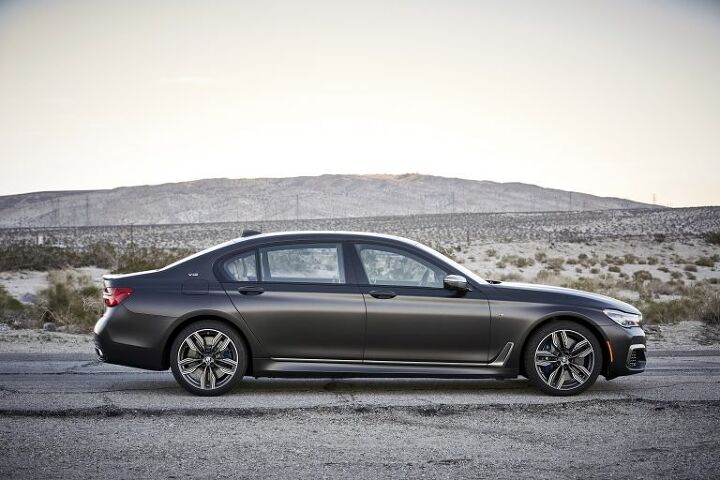#Germany
Dueling Development Centers Force GM to Slam the Brakes on Opel Sale
The handover of General Motors’ European operations and creation of a new Opel corporate identity, which was expected later this week, has come to a screeching halt.
As part of the $2.3 billion sale to France’s PSA Group, GM’s longtime German subsidiary will take on the name Opel Automobile GmbH — but not until the two companies clear a big hurdle. It seems the problem comes down to a tale of two development centers: one owned by GM, the other by PSA.
German Prosecutors Confirm VW CEO as Focus of Official Investigation
German prosecutors verified the launch of a formal investigation involving Volkswagen Group CEO Matthias Müller and chairman Hans Dieter Poetsch due to suspected market manipulation.
While we reported on the probe last week, Müller’s inclusion was highly unexpected. It was unclear what, if anything, officials had on the CEO and why they waited until now to add him to the growing number of upper-level executives under examination.
The Stuttgart prosecutor’s office stated on Wednesday the investigation was prompted by a request from market regulator BaFin in the summer of 2016. After spending some time gathering evidence, investigators began to believe executives deliberately postponed releasing information to investors about the scale of the scandal and didn’t adequately disclose its financial consequences.
VW Group maintains the leadership had complied with disclosure rules and executives were unaware of the scope of the emissions cheating scandal when it kicked-off.
Volkswagen CEO Matthias Mller Under Investigation for Diesel Knowledge
Volkswagen Group CEO Matthias Müller is under investigation in Germany over the possibility he withheld important information on the company’s emissions scandal to investors, as well as potential market manipulation relating to Porsche. While public prosecutors continued to broaden their search among high-ranking company officials, the inclusion of the CEO is a bit of a surprise.
It was widely believed Müller would be free from scrutiny as he was appointed to replace ex-CEO Martin Winterkorn shortly after the emissions scandal went public in September 2015. Initially, German investigators even stated the CEO was not suspected of any wrongdoing. Then, in March of 2017, prosecutors launched a raid that seized the mobile phones, electronic passwords, appointment books, and email files of numerous Volkswagen and Audi employees — including Müller.
8 Series Coupe is Coming Next Year, BMW Finally Confirms
It once sat at the pinnacle of BMW’s model podium, but cutting-edge technology, German opulence and a choice of eight or twelve cylinders couldn’t keep the 8 Series in production. It was only rival Mercedes-Benz’s decision to push the S-Class into the luxury stratosphere that compelled the Munich automaker to consider climbing the luxury ladder again.
Now, a year after the automaker trademarked a slew of 8 Series model names and insider sources assured us of its return, BMW has officially confirmed it. The 8 Series will reappear next year.
Tesla Struggles to Make Nice With European Engineering Firm's Jilted Clients
Tesla Motors has said it is making efforts to resolve outstanding issues with Grohmann Engineering’s legacy clients, including Daimler, BMW, Bosch, Intel, and Volkswagen Group. After the Tesla takeover last November, CEO Elon Musk indicated to Grohmann’s management team that the brunt of its efforts should be diverted away from former customers in order to focus primarily on production facilities related to the Model 3.
The move placed Musk at odds with company founder Klaus Grohmann, eventually resulting in his abrupt departure, and was a major source of tension among the German workforce — which, backed by IG Metall, has threatened to strike. Negotiations have already yielded improved worker pay and hiring promises, but Tesla now appears to be tackling the issue of how to handle the numerous clients who have been hung out to dry.
Too Hot: Killer Lease Deal Got German Peugeot Managers Fired
When you’re hot, you’re hot. And when you’re the architect of a leasing promotion gone bad (by way of being too successful), you’re fired.
PSA Group reportedly canned its top German managers after a scorching lease deal on Peugeot 208 hatchbacks sent the country’s residents clamoring for wildly discounted French cars.
It wasn’t supposed to be that way.
Tesla Ousts Supplier's Management and Sweetens Pay Deal to Avoid German Strike
Tesla Motors has smooth-talked its Californian workforce out of unionizing for some time, but the labor war is now being waged on two fronts.
Since acquiring German supplier Grohmann Engineering, that company’s workforce has accused Tesla of unfair wages and dissolving established business ties to focus solely on the upcoming Model 3. Elon Musk was forced to personally reassure Grohmann, now called Tesla Advanced Automation Germany, to keep it from syncing up with autoworkers’ union IG Metall and going on strike.
Since the supplier is an essential part of the Model 3’s timely production, Tesla has changed tactics and is now throwing more money at Germany and promising extra jobs in the hope of avoiding work stoppages. It also apparently removed the company’s CEO and founder, Klaus Grohmann, after repeated clashes with Musk over the firm’s future.
Tesla Strives to Avoid German Strike and Maintain Model 3 Production Date
It’s no secret that the success of Tesla’s forthcoming Model 3 will dictate its position as a mainstream automaker for the foreseeable future. Tesla’s current status as the most valuable carmaker in the United States is riding, almost entirely, on the problem-free assembly of its “affordable” EV this summer. So, when one of its German suppliers threatened to go on strike earlier this month, you can imagine the series of panic attacks CEO Elon Musk probably suffered.
Last week, the company’s recently acquired industrial robotics unit Grohmann began labor negotiations over insufficient wages and Tesla’s decision to suspend all contracts that didn’t pertain specifically to the Model 3. And, to ensure things went his way, Musk has become directly involved in the process.
German Prosecutor Launches Daimler Diesel Fraud Investigation
In a developing story, the Stuttgart prosecutors’ office has launched an investigation into employees of Daimler, parent company and manufacturer of Mercedes-Benz BlueTEC engines. At issue is the (lately) very common Germanic malady of diesel infidelity.
German Autoworkers Discover Bimmers, Booze and Bongs Don't Mix
If you end up purchasing a BMW 3 or 4 Series model build at the automaker’s Munich assembly plant in early march, just know this: two of the workers building it might have been high as a kite.
A report in today’s Bild newspaper claims that two workers were so blitzed on booze and synthetic marijuana that they passed out while working on the assembly line, causing a temporary — and costly — shutdown. Yes, this happened, BMW has confirmed.
In an Odd Twist, German Authorities Raid Volkswagen's Internal Investigator
At some point, a scandal grows so big that investigations begin to overlap. When the scope widens even more, investigators suddenly begin investigating each other.
That’s the current situation in the Fatherland, where American law firm Jones Day recently had its offices raided at the request of German authorities in hot pursuit of executive skulduggery. Jones Day, of course, is the internal investigator hired by VW to probe the shady dealings that led to the diesel emissions scandal.
What started with unusual emissions readings at a West Virginia university now feels a lot like The Departed.
German Audi and VW Offices Raided in Ongoing Diesel Emissions Investigation
As Volkswagen Group’s emission scandal settles down in the United States, things in Europe remain unresolved. German police raided the headquarters of Volkswagen and Audi as part of the never-ending investigations into the company’s diesel cheating.
The German blitz was carefully orchestrated as investigators simultaneously hit Audi’s headquarters in Ingolstadt, the corporate offices at its Neckarsulm plant, and VW’s headquarters in Wolfsburg. Separate spokesmen from VW and Audi confirmed the raids, both adding they’re cooperating with authorities.
GM's Opel Sale Largely Complete, to Be Announced Next Week: Report
Germany Demands Investigation Into Odd Exit of Volkswagen's Compliance Chief
Politicians from Volkswagen’s home region of Lower Saxony are raising questions over the unanticipated departure of the German automaker’s compliance chief, Christine Hohmann-Dennhardt, saying they have concerns over how the supervisory board handled the matter. There has been a long-standing apprehension among investors and business analysts that VW is too tightly controlled by its founding Porsche-Piech family and incapable of amelioration.
On Wednesday, Deutsche lawmakers called for a formal inquiry on the matter.
Hohmann-Dennhardt was brought aboard very late in 2015 to assist in Volkswagen’s reformation following the diesel emissions cheating scandal. However last month, after only a year on the job, she left abruptly with a sizable pension and gargantuan severance.
BMW Sticks First 'M' Badge on 7 Series, Creating Sporty V12 Beast
For the first time, BMW has given its flagship 7 Series an M badge. And while that may conjure up images of a standard 7 Series with a bit of performance tinsel, that’s not really the case here. The numbers are quite impressive.
The full name of this new model is a mouthfull: M760Li xDrive. Though that sounds more like a fax machine from about 1997, there are a few differences between the BMW and a dated beige electronic.




























Recent Comments